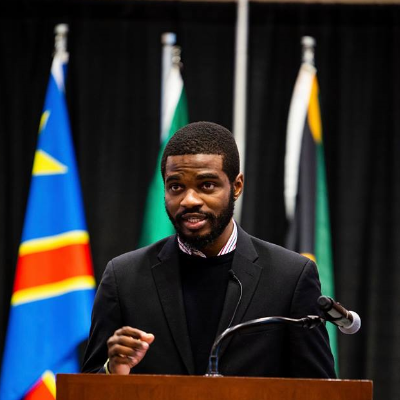Tangelic Talks – Season 02 | Episode 02
Powering the Future: Energy Access, Critical Minerals & The Degrowth Debate - Panel Discussion
5 minutes to read
What does a truly just energy future look like? In this first-ever panel episode of Tangelic Talks, host Jensen Cummings is joined by a powerhouse trio: Dr. Tam Kemabonta, Madison Harris, and Victoria Cornelio to dive deep into the intersections of energy access, critical minerals, and the degrowth dilemma. This wide-ranging, thought-provoking discussion explores the tensions between economic development and climate justice—and the urgent need to rethink the systems that have shaped global inequality, resource extraction, and consumption.
Segment 1: Access to Energy – Laying the Groundwork for a Just Transition
-
Access must come first: Before advancing the clean energy transition, we must prioritize the fundamental right to energy access—especially for billions living in energy poverty.
-
Equity in sustainability: There’s a real tension between rapid decarbonization and universal affordability. Climate goals must not come at the expense of energy justice for marginalized communities.
-
Off-grid solutions are essential: Technologies like solar microgrids can bypass traditional infrastructure gaps and democratize energy access—especially in rural or underserved areas.
-
The Global North vs. South dynamic: Wealthier nations risk monopolizing green technologies while poorer regions remain stuck with polluting fuels—raising concerns about a two-tier energy future.
-
Financing gaps: Current financing mechanisms like carbon credits and development loans often reinforce existing inequities. There’s a need to rethink how we fund the energy transition so it works for the many, not the few.
Segment 2: Energy Transition and the Critical Minerals Dilemma
-
Old habits, new materials: The global race for lithium, cobalt, and rare earths may be repeating extractive patterns of the fossil fuel era—especially in the Global South and Indigenous territories.
-
Environmental cost of “clean” tech: Green energy doesn’t automatically mean green practices. Mining for critical minerals often has devastating ecological and human impacts.
-
Call for ethical sourcing: Stricter global regulations and supply chain transparency are needed to prevent new forms of resource colonialism.
-
Circular economy potential: Emphasizing recycling, reuse, and circularity could reduce the demand for new extraction—but requires major investment and innovation.
-
Fair benefit-sharing: Countries rich in minerals must be empowered to negotiate fair terms, ensure local value addition, and avoid being locked into exploitative roles.
Segment 3: Degrowth – Radical Vision or Practical Necessity?
-
Degrowth as redefinition: Degrowth isn’t about economic collapse—it’s about reimagining well-being beyond GDP and scaling back excessive production and consumption.
-
Political and social feasibility: Degrowth faces resistance in a capitalist system built on perpetual growth, but its ideas are gaining traction amid growing planetary boundaries.
-
Impact on energy transition: A degrowth model could reduce energy demand and make the transition easier—but critics worry it might also stall innovation and investment.
-
Global justice concern: Without careful policy design, degrowth in the Global North could exacerbate inequality by reducing global trade and limiting opportunities for countries still developing.
-
Alternatives to degrowth?: A steady-state economy or “post-growth” framework might offer a middle path—promoting well-being, resilience, and ecological limits without halting progress entirely.
Meet our Panelists
Dr Tam Kemabonta is an energy systems specialist focused on institutions, regulation, and electricity markets across Sub-Saharan Africa and North America. He is also the founder of Entric, an energy transition infrastructure company bringing clean power to underserved communities.
Madison Harris is working and studying at Arizona State University as she completes a Master’s of Sustainability Solutions degree. Her academic interests include the tradeoffs and negative consequences associated with technological innovations and the transition toward renewable energy.
Victoria Cornelio works for an environmental think tank focused on clean energy and water, and also serves as a communications officer for a children’s charity. She has a background in politics and a master’s degree specializing in the sociopolitical dimensions of climate change




